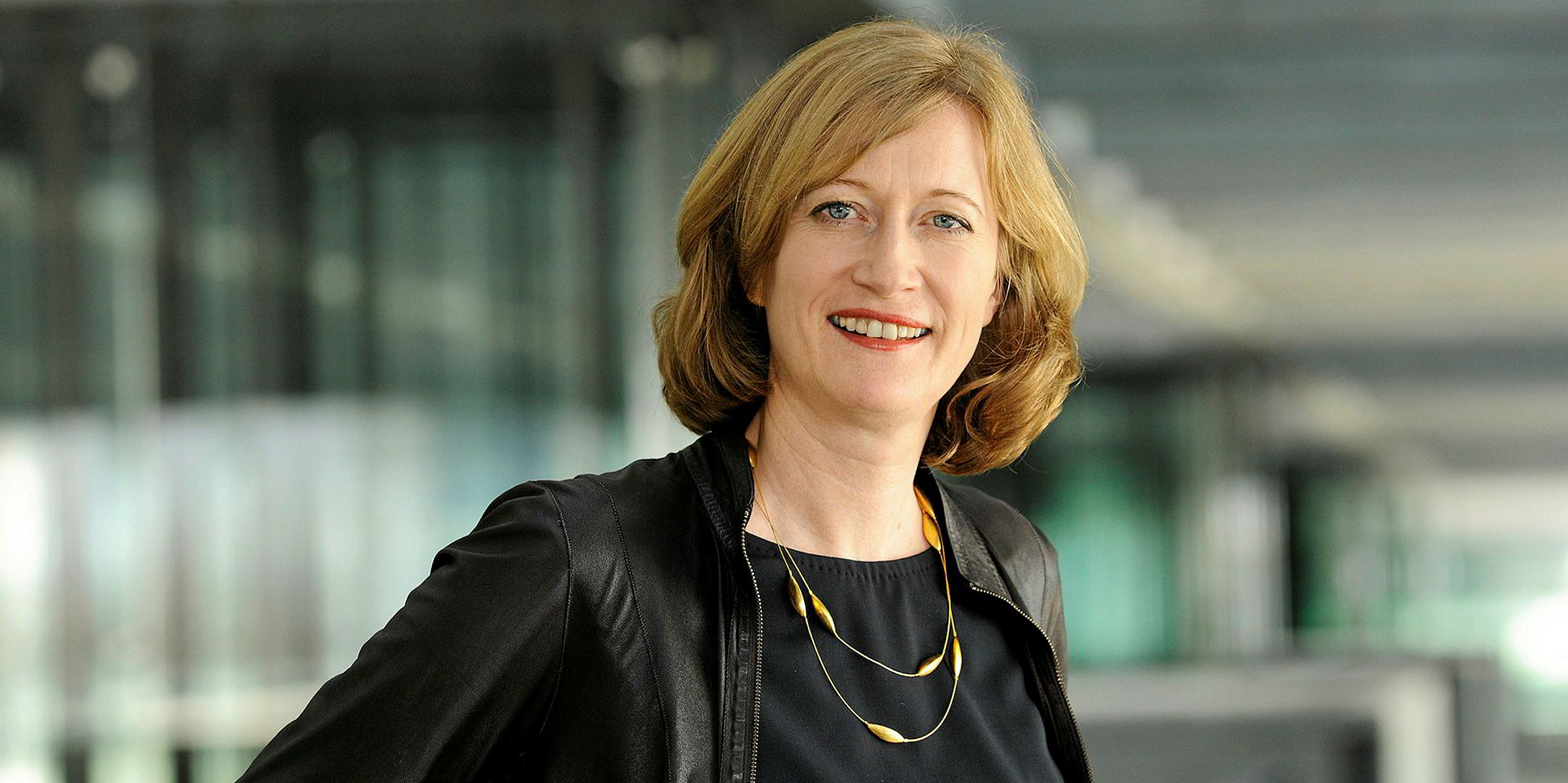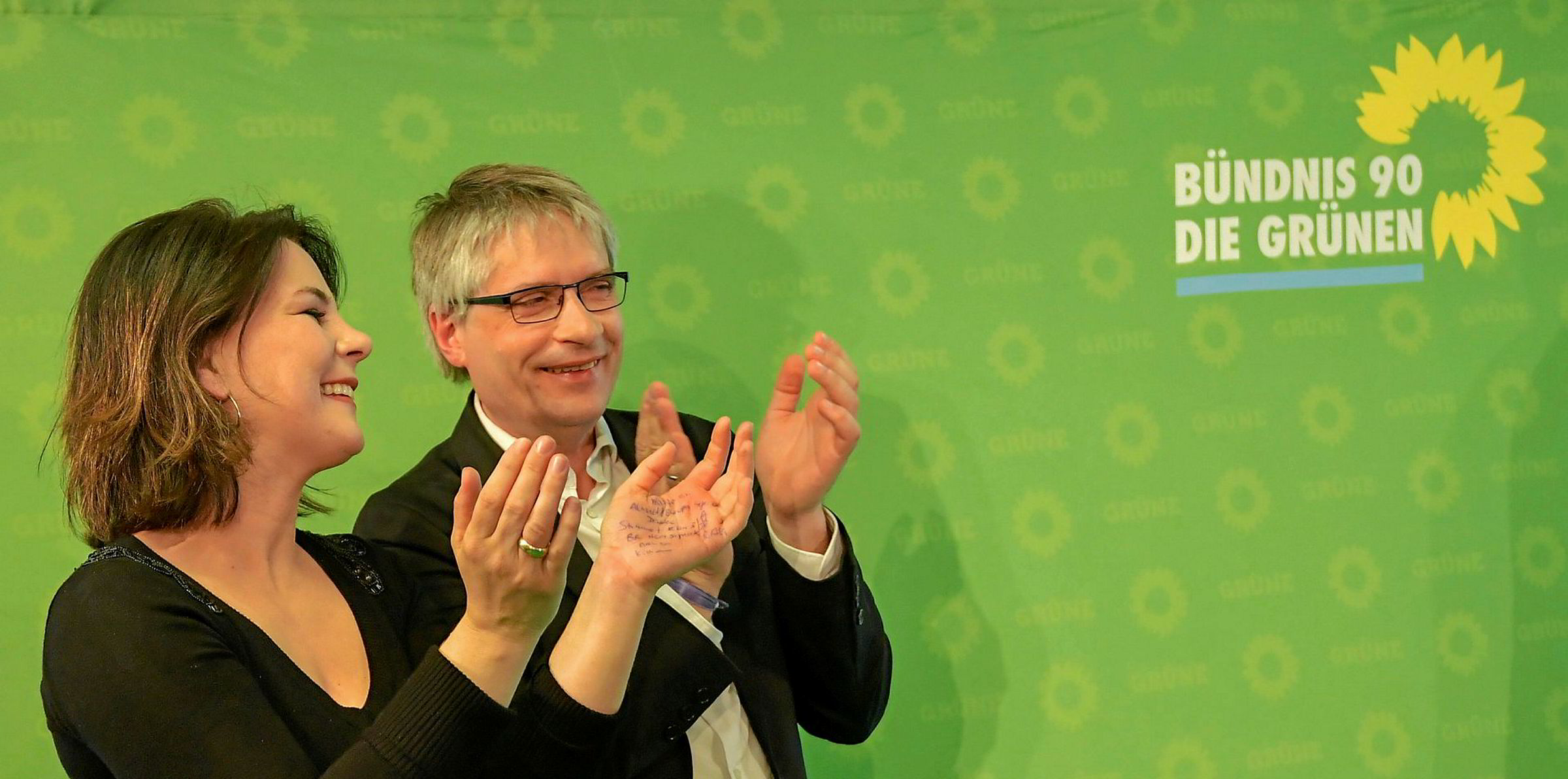Members of the Green Party are increasingly moving into the centre stage of Germany’s energy sector, while at the same time conservatives from Merkel’s governing party are cosying up to climate issues in what could be a prelude to a future Green-conservative alliance.
The Greens growing influence became apparent when the executive committee of the influential Federation of Energy and Water Industries (BDEW) today has nominated Green member of parliament and economic policy speaker Kerstin Andreae to become its new chairman.
Andreae still needs to be formally confirmed by the BDEW board on August 13, but her appointment at this point seems a mere formality.
She would follow up on Stefan Kapferer, who leaves the BDEW to become chief executive at transmission system operator 50Hertz.
The swap at the BDEW’s top couldn’t be more symbolic.
Kapferer, a former secretary of state, is a member of the pro-nuclear Free Democrats (FDP), which are also against a too-fast coal exit and lukewarm about Germany’s energy transition.
The Greens by contrast, next to being stern defenders of the country’s exit from nuclear power by 2022, also lobby for a much faster end to coal- and lignite-based power generation than by 2038 as the so-called coal exit expert commission earlier this year has recommended the government.
As the country’s main energy lobbyist, the BDEW in the past had commonly represented the interests of large utilities such as RWE or E.ON, which until recently still generated a large part of their energy from nuclear, coal and lignite, and have at times aggressively defended a continued use of coal (particularly RWE).
An expansion of renewables was accepted by the top utilities only as long as it brought good revenue and would not endanger their conventional power generation assets.
But the BDEW in recent times has shifted its tone.
BDEW president Maire-Luise Wollf at the federation’s annual congress in June lobbied for a much faster wind power expansion of 10-11GW per year if Germany wants to reach its 2030 climate targets, and in a newspaper interview said Merkel’s government is no longer a driving force of the Energiewende – the country’s transition from nuclear and fossil to renewable energies.
Before the BDEW, Germany’s main renewables pressure group, the Federation of Renewable Energies (BEE) has already been dominated by Greens.
The BEE early last year picked former Green Party co-chair Simone Peter – a very high profile and respected politician in Germany – to be its new president.
Peter since has moved her harsh criticism of Berlin’s climate policy from parliament to the public sphere, in her function as the head of the country’s main lobby for renewables.
With both the BDEW and the BEE soon to be headed by prominent Greens, the pressure on Merkel’s government and on recalcitrant backers of coal within the energy industry will increase even more, likely giving a boost to renewables.
Some in Merkel’s coalition may already be switching gears.
Markus Söder, the powerful state premier of Bavaria and leader of the Christian Social Union (CSU), the Bavarian allies of Merkel’s Christian Democrats (CDU), has recently lobbied for an earlier coal exit by 2030, as the Greens demand. He also suggested anchoring climate protection in Germany’s Basic Law, its constitution.
While it is relatively painless for Bavaria to demand an earlier coal exit as the state hosts no coal mining, Söder’s motivations are not entirely clear.
He may want to stop the recent stellar rise of the Greens, which in autumn elections have become Bavaria’s second-largest party just behind the CSU, and are rivalling the CDU/CSU in national opinion polls for the top slot.
But Söder could also be preparing the path for a post-Merkel era, in which the CDU/CSU might enter a coalition with the Greens, either as senior partner, or even as junior partner as is already happening in the state of Baden-Württemberg, Bavaria’s neighbour.


